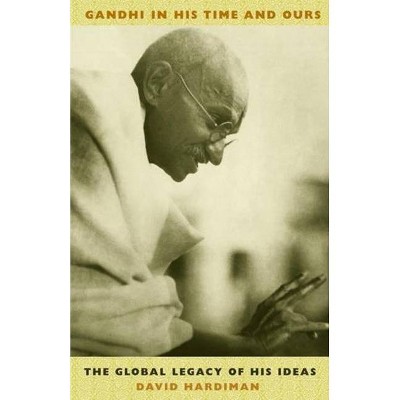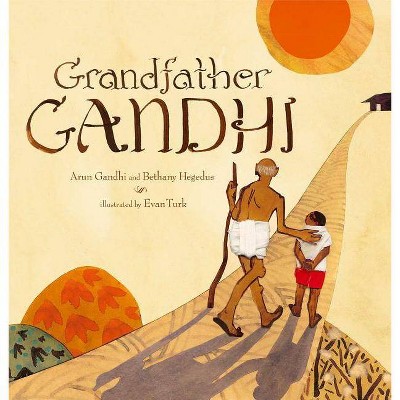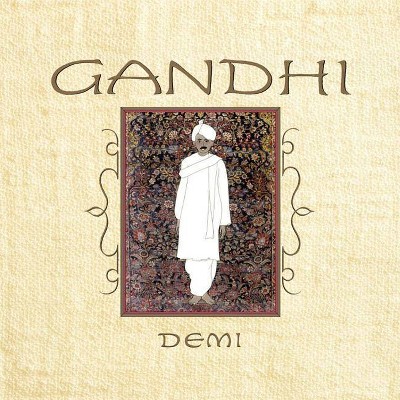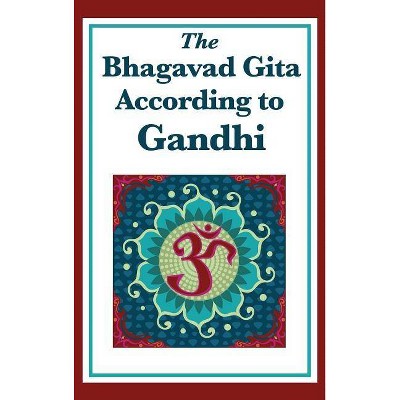Gandhi in His Time and Ours - by David Hardiman (Hardcover)

Similar Products
Products of same category from the store
AllProduct info
<p/><br></br><p><b> About the Book </b></p></br></br><p>Gandhi was the creator of a radical style of politics that has proved effective in fighting insidious social divisions within India and elsewhere in the world. How did this new form of politics come about? David Hardiman shows that it was based on a larger vision of an alternative society, one that emphasized mutual respect, resistance to exploitation, nonviolence, and ecological harmony.</p><p/><br></br><p><b> Book Synopsis </b></p></br></br>Gandhi was the creator of a radical style of politics that has proved effective in fighting insidious social divisions within India and elsewhere in the world. How did this new form of politics come about? David Hardiman shows that it was based on a larger vision of an alternative society, one that emphasized mutual respect, resistance to exploitation, nonviolence, and ecological harmony. <p/>Politics was just one of the many directions in which Gandhi sought to activate this peculiarly personal vision, and its practice involved experiments in relation to his opponents. From representatives of the British Raj to Indian advocates of violent resistance, from right-wing religious leaders to upholders of caste privilege, Gandhi confronted entrenched groups and their even more entrenched ideologies with a deceptively simple ethic of resistance. Hardiman examines Gandhi's ways of conducting his conflicts with all these groups, as well as with his critics on the left and representatives of the Dalits. He also explores another key issue in Gandhi's life and legacy: his ideas about and attitudes toward women. <p/>Despite inconsistencies and limitations, and failures in his personal life, Gandhi has become a beacon for posterity. The uncompromising honesty of his politics and moral activism has inspired such figures as Jayaprakash Narayan, Medha Patkar, Martin Luther King Jr., Nelson Mandela, and Petra Kelly and influenced a series of new social movements--by environmentalists, antiwar campaigners, feminists, and human rights activists, among others--dedicated to the principle of a more just world.<p/><br></br><p><b> Review Quotes </b></p></br></br><br>This well-documented and hard-bitten investigation presents Gandhi's principles... using accessible prose and factual analysis.--Peace & Change<br><br>Well written and well documented...Very highly recommended.--Choice<br><br>Hardiman's book is an excellent review and synthesis of the literature and a sober evaluation of Gandhi's legacy in India and beyond.--Kaushik Bagchi "History "<br><br>Hardiman's volume is an extremely valuable addition to the already voluminous literature on Gandhi, offering to the novice a rich introduction to the man and his work and to the expert a series of thought-provoking arguments and insights.--Stephen P. Blake "Journal of Asian Studies "<br><br>It certainly ranks among the most useful books on Gandhi published in the last decade.--David M. Fahey "Canadian Journal of History "<br><br>This excellent volume by Hardiman... Will be an invaluable resource.--John E. Cort "Religious Studies Review "<br><p/><br></br><p><b> About the Author </b></p></br></br>David Hardiman, who lived for many years in Gandhi's home region ofGujerat, is based at the University of Warwick. He is a founding member of the Subaltern Studies group. His books include <i>Peasant Nationalists of Gujarat, 1917-1934</i>, <i>The Coming of the Devi: Adivasi Assertion in Western India</i>, and <i>Feeding the Baniya: Peasants and Usurers in Western India</i>.
Price History
Price Archive shows prices from various stores, lets you see history and find the cheapest. There is no actual sale on the website. For all support, inquiry and suggestion messages communication@pricearchive.us




















